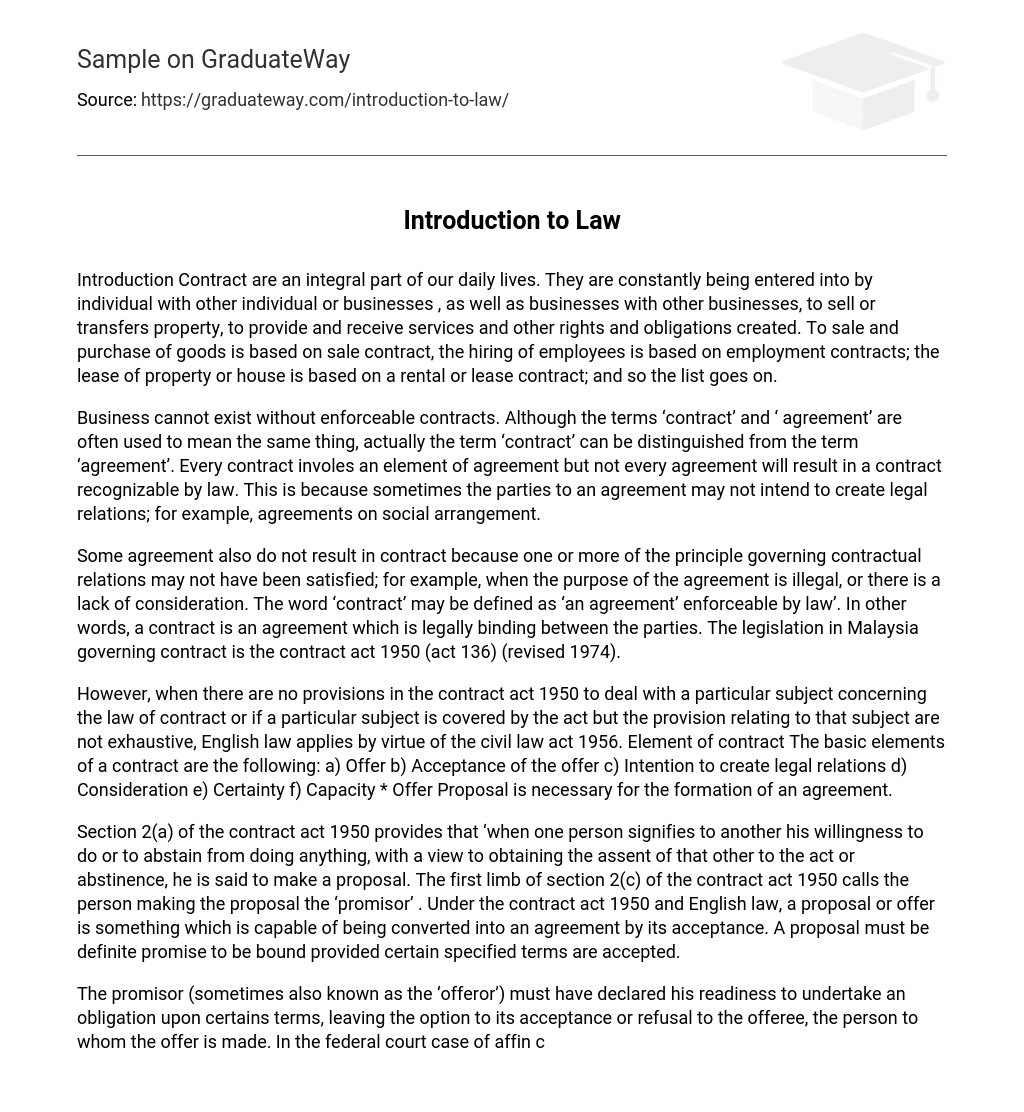Contracts play a vital role in our day-to-day lives, as both individuals and businesses frequently engage in agreements with one another. These agreements encompass various transactions such as property buying or transferring, service provision and receipt, and establishment of rights and responsibilities. For instance, sales contracts are indispensable for the exchange of goods, employment contracts regulate the hiring of employees, while rental or lease contracts facilitate the renting or leasing of properties or housing. Numerous other examples can be included in this enumeration.
Enforceable contracts play a crucial role in business. They differ from simple agreements as not every agreement is considered legally binding. The reason behind this is that parties involved may not have the intention to form legal relations, especially in social arrangements.
Not all agreements lead to a contract due to failure in meeting certain principles for contractual relations. Instances of this include agreements involving illegal objectives or absence of consideration. The term ‘contract’ is defined as an enforceable agreement under the law, essentially being a legally binding agreement between parties. In Malaysia, the legislation that regulates contracts is the Contract Act of 1950 (Act 136) (revised 1974).
English law is applicable in situations where the contract act 1950 does not address a specific subject or if its provisions are not comprehensive. This is stated in the civil law act 1956.
The following are the basic elements of a contract:
- Offer
- Acceptance of the offer
- Intention to create legal relations
- Consideration
- Certainty
- Capacity
- Offer Proposal is necessary for the formation of an agreement.
Section 2(a) of the Contract Act 1950 states that a proposal is when someone expresses their willingness to do or refrain from doing something in order to get someone else’s agreement. This person is called the promisor according to Section 2(c) of the same act. Both the Contract Act 1950 and English law state that a proposal can become an agreement if it is accepted. However, for a proposal to be valid, it must have clear terms that can be agreed upon.
The promisor or offeror must have announced their willingness to fulfill an obligation with certain terms, giving the offeree or recipient of the offer the choice to accept or decline it. In the federal court case of Affin Credit (Malaysia) Sdn Bhd v Yap Yuen Fui, where there was no offer and acceptance, the alleged hire-purchase agreement was considered void ab initio, meaning it was void from the beginning. As per section 4(1) of the Contract Act 1950, a proposal is deemed fully communicated when received by its intended recipient.
According to section 3 of the contract act 1950, the effectiveness of an offer or proposal relies on its communication from the offeror to the offeree. The act or omission by the party making the proposal, which is meant to convey or has the effect of conveying the proposal, is considered as communication. An implied proposal, as stated in section 9 of the contract act 1950, refers to a proposal communicated through spoken or written words.





